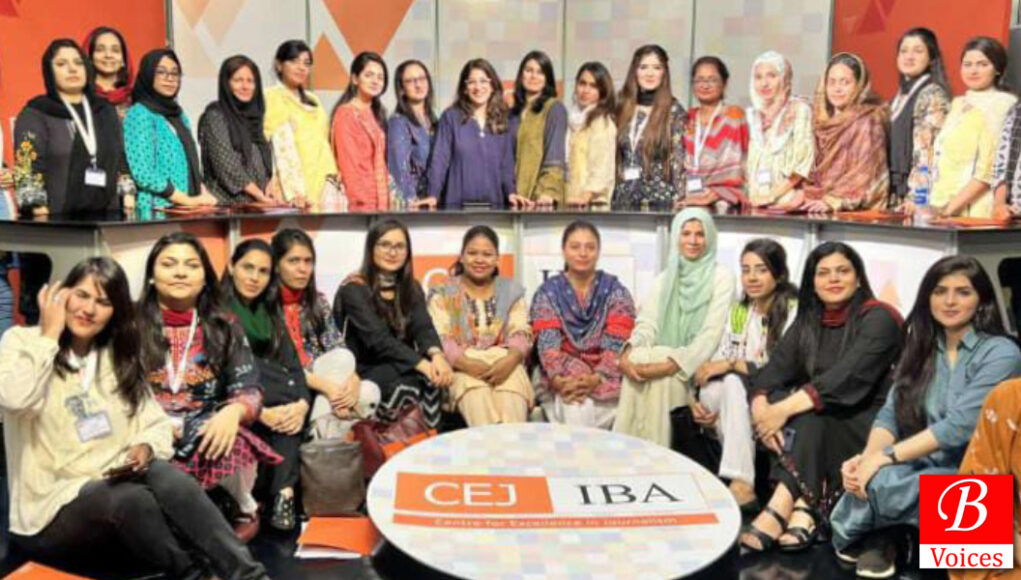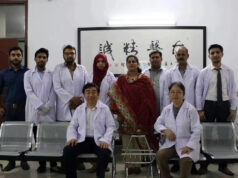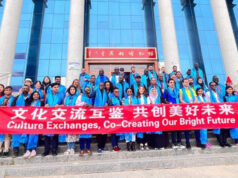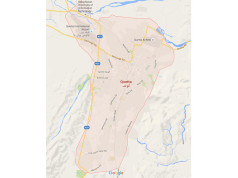Tahira Khan
Female journalists need a more secure platform when it comes to media. In this context, CEJ (Centre for Excellence in Journalism), IBA, organized a workshop for female journalists of Sindh and Balochistan on September 26. This workshop was held in collaboration with UNESCO (United Nations for Educational, Scientific, and Cultural Organization) and LAS (Legal Aid Society).
Globally, women in media witness online and offline attacks. These attacks are putting their safety at risk. Besides, these attacks include trolling, sexist remarks, hate speech, stigmatization, violence, and gender-based discrimination. According to a UNESCO report, female journalists are more targeted online as compared to their male counterparts. Studies have also shown that females are attacked based on their ethnic background and physical features rather than the context of their work.
Owing to these threats, investigative journalist work is much affected along with the freedom of speech. Therefore, the media landscape provides less space for freedom of speech and diversity. Moreover, this narrow freedom has created inequalities both in society and the newsroom.
In this regard, CEJ arranged a workshop to spread awareness among female journalists regarding their online and offline security. The first session of the workshop was based on digital security where the trainer, Farieha Aziz, focused on the safety of social media apps including WhatsApp, Twitter, Facebook, Instagram, etc. During the session, the trainer also emphasized the information which journalists put on their social media accounts. More often, the sensitivity of information put the life and career of journalists at risk.
Following that, Guest Speaker, Shaheryar Popalzai, provided an insightful session on digital phishing and social engineering. Social engineering is a kind of malicious activity that involves human interaction. It accomplishes security breaches via psychological manipulation to acquire sensitive information. In particular, the Guest Speaker mentioned that it is mainly because of human carelessness which leads to giving away sensitive information. In addition to that, he reiterated that hackers spend months researching the target in order to hack their social media presence or acquire access to sensitive resources.
Further, the next session of the workshop was based on Editorial Guidelines. This session was conducted by Director CEJ of IBA, Amber Rahim Shamsi. During the session, the trainer focused more on what needs to be public and what must be kept private. The session also mentioned Do’s and Don’t’s publishing platforms. Certainly, these guidelines are valuable keeping in view the profession of journalism. In the end, the trainer remarked that both sides of the story are not required to be taken if some heinous crime is committed.
It is pertinent to note that the workshop also arranged a session to understand laws involving the cyber security of women. It included a brief introduction to the Protection Against Harassment of Women at the Workplace (Amendment) Act, 2022. Besides, the trainer also discussed the Prevention of Electronic Crimes Act (PECA), 2016. During the workshop, one of the Guest speakers also discussed how to file a complaint involving cyber threats and online harassment issues.
In the end, Director CEJ, Amber Rahim Shamsi, along with another trainer, Farieha Aziz, gave a session regarding Digital Risk Assessment. The session explored digital, legal, and editorial remedies for different scenarios such as when the account is hacked and concerned authorities don’t file a complaint. Besides, the scenarios also included when the journalist is either threatened or impersonated online. Moreover, the trainers also briefed journalists on what to do when FIA summoned them to visit their office.
Journalists face many more threats when it comes to cyber security. They are either harassed by coworkers or their pictures are morphed and applied to other content. The list of threats also includes PTA when it asks to take down the published content. Sometimes, women are accused by multiple media accounts of fake news.
Overall, the session provided information and training regarding the cyber security of women in the media. From home to the office, every woman must take extra precautionary measures to remain safe. And, this safety is not required online but also in offline spaces.
Share your comments!








